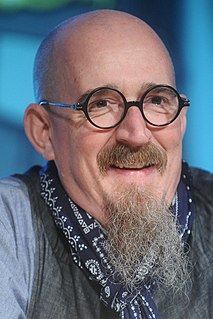A Quote by P. G. Wodehouse
I don’t know if you have had the same experience, but the snag I always come up against when I’m telling a story is this dashed difficult problem of where to begin it.
Related Quotes
I think when people begin to tell their stories, everything changes, because not only are you legitimised in the telling of your story and are you found, literally, like you matter, you exist in the telling of your story, but when you hear your story be told, you suddenly exist in community and with others.
I think when people begin to tell their stories, everything changes, because not only are you legitimized in the telling of your story and are you found, literally, like you matter, you exist in the telling of your story, but when you hear your story be told, you suddenly exist in community and with others.
The solution to a problem - a story that you are unable to finish - is the problem. It isn't as if the problem is one thing and the solution something else. The problem, properly understood = the solution. Instead of trying to hide or efface what limits the story, capitalize on that very limitation. State it, rail against it.
A poem is like a person. The more you know someone, the more you realize there is always something more to know and understand. A final understanding could probably only begin upon permanent separation, or death. This is why we come back to certain poems, as we do to places or people, to experience and re-experience, to see ourselves for who we truly are, and to continue to be changed.
Jessica, I know I've been...difficult," he said. "All the same—" "Difficult?" She looked up, her grey eyes wide, "You have been impossible. I begin to think you are not right in the upper storey. I knew you wanted me. The only thing I've never doubted was that. But getting you into bed— you, the greatest whoremonger in Christendom— gad, it was worse than the time I had to drag Bertie to the tooth-drawer. And if you think I mean to be doing that the rest of our days, you had better think again. The next time, my lord, you will do the seducing— or there won't be any, I vow.
Ah" said Dumbledore gently, "Yes I thought we might hit that little snag!" "Snag?" said Fudge, his voice still vibrating with joy. "I see no snag, Dumbledore!" "Well," said Dumbledore apologetically, "I'm afraid I do." "Oh, really?" "Well it's just that you seem to be labouring under the delusion that I am going to -- come quietly. I am afraid I am not going to come quietly at all, Cornelius. I have absolutely no intention of being sent to Azkaban. I could break out, of course -- but what a waste of time, and frankly, I can think of a whole host of things I would rather be doing.





































